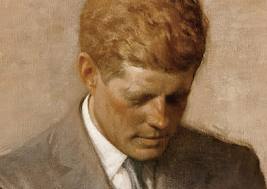Americas
In North America, unlike in Europe, the word liberalism almost exclusively refers to social liberalism in contemporary politics. The dominant Canadian and American parties, the Liberal Party and the Democratic Party, are frequently identified as being modern liberal or centre-left organizations in the academic literature.
In Canada, the long-dominant Liberal Party, colloquially known as the Grits, ruled the country for nearly seventy years during the 20th century. The party produced some of the most influential prime ministers in Canadian history, including Pierre Trudeau, Lester B. Pearson and Jean Chrétien, and has been primarily responsible for the development of the Canadian welfare state. The enormous success of the Liberals—virtually unmatched in any other liberal democracy—has prompted many political commentators over time to identify them as the nation’s natural governing party. However, in recent elections the party has been performing poorly, eclipsed federally by both the Conservative Party and the social democratic New Democratic Party.
In the United States, modern liberalism traces its history to the popular presidency of Franklin Delano Roosevelt, who initiated the New Deal in response to the Great Depression and won an unprecedented four elections.  The New Deal coalition established by Franklin Roosevelt left a decisive legacy and influenced many future American presidents, including John F. Kennedy, a self-described liberal who defined a liberal as “someone who looks ahead and not behind, someone who welcomes new ideas without rigid reactions… someone who cares about the welfare of the people.”
The New Deal coalition established by Franklin Roosevelt left a decisive legacy and influenced many future American presidents, including John F. Kennedy, a self-described liberal who defined a liberal as “someone who looks ahead and not behind, someone who welcomes new ideas without rigid reactions… someone who cares about the welfare of the people.”
In Latin America, liberal unrest dates back to the 19th century, when liberal groups frequently fought against and violently overthrew conservative regimes in several countries across the region. Liberal revolutions in countries such as Mexico and Ecuador ushered in the modern world for much of Latin America. Latin American liberals generally emphasized free trade, private property, and anti-clericalism. Today, market liberals in Latin America are organized in the Red Liberal de América Latina (RELIAL), a centre-right network that brings together dozens of liberal parties and organizations.